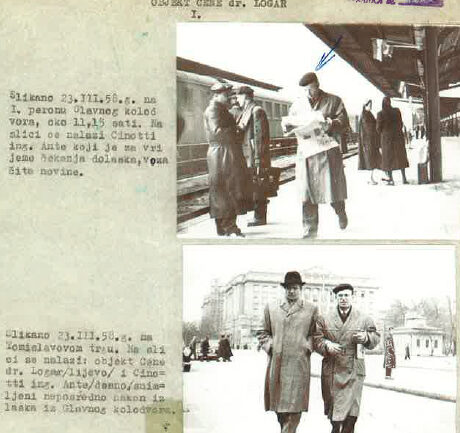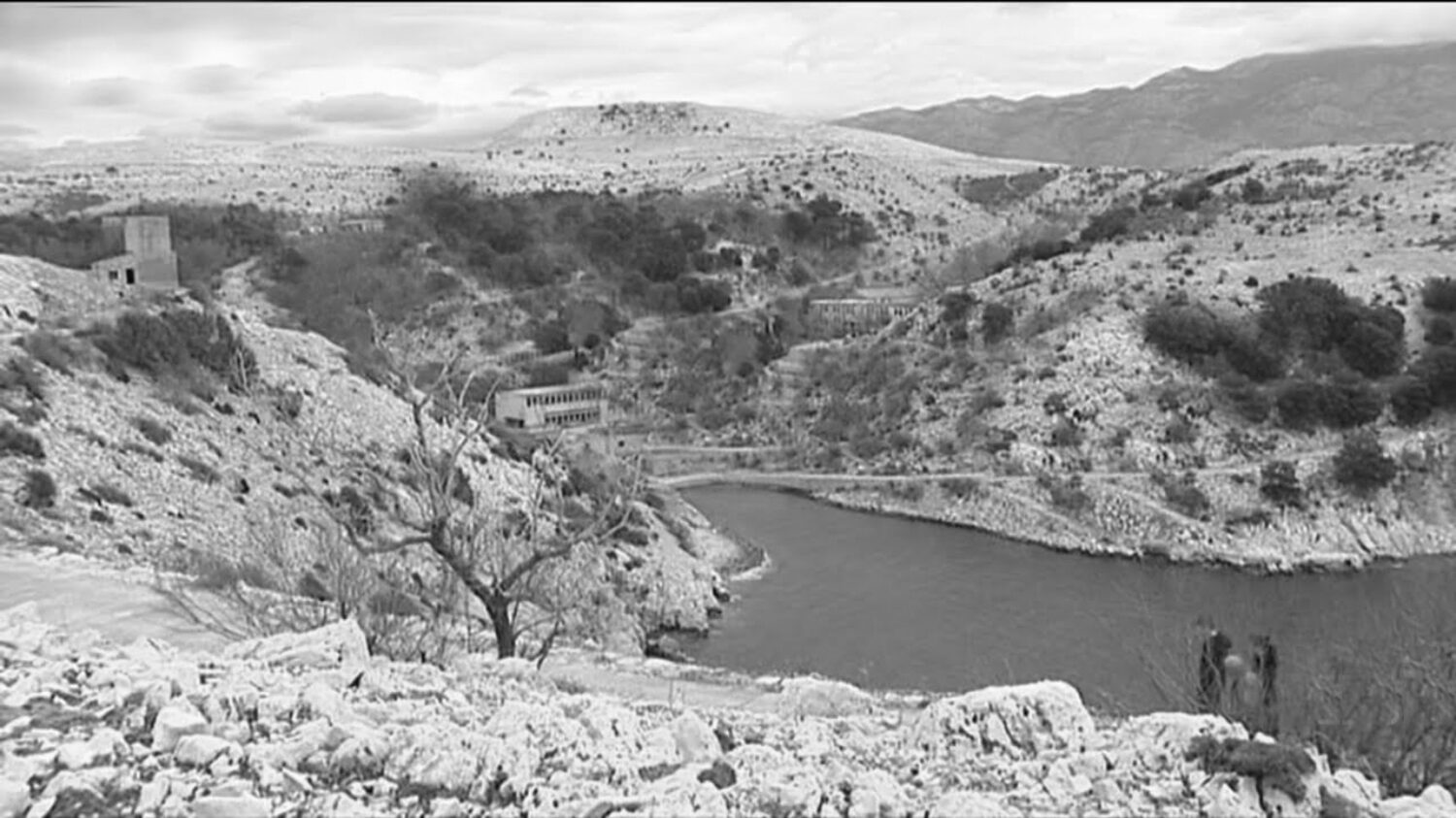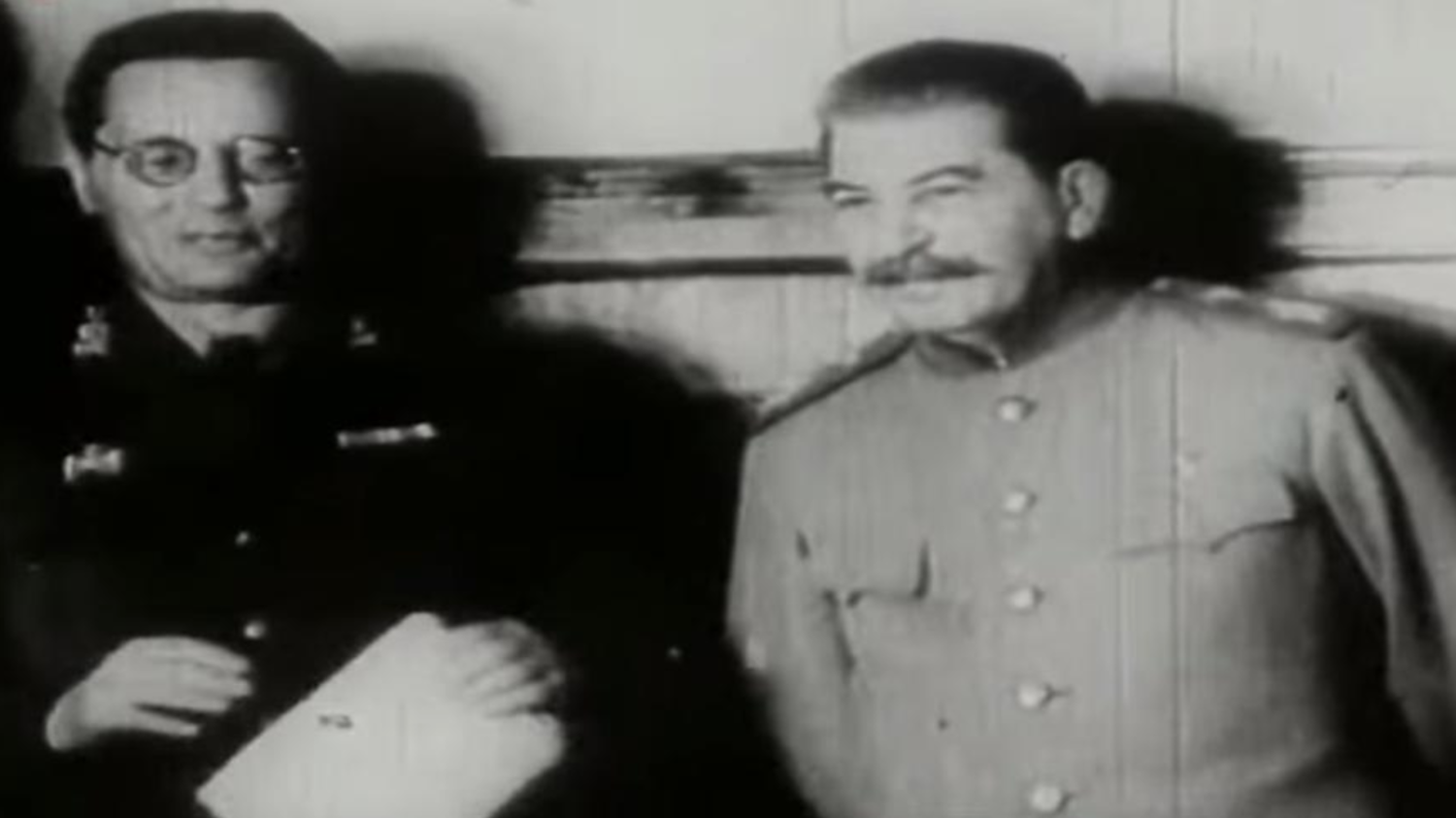Golootočani after Goli Otok
![]()
The length of time served in Goli Otok differed among individual convicts, but on average they stayed there for two years. Upon establishing that a prisoner’s ‘re-education’ has reached its goal, the management of the camp would release them. Before leaving, every prisoner had to sign a document obliging them to remain silent about their experiences in Goli Otok. That included not only speaking in public, but also to their families. In addition, they had to agree to keep cooperating with the UDB in the outside world as well, in detecting every form of enemy activity, as well as monitoring the activities of former prisoners of Goli Otok.

The UDB monitoring former prisoners.
![]()
Although their sentences had been served, former prisoners could not resume their normal lives upon release. They were still considered traitors and as such subjected to fresh forms of boycotting, humiliation, and stigmatisation. They struggled to find work, lost old friends, their acquaintances shunned them. Every ‘sensitive’ political situation, whether a visit by a foreign dignitary or a foreign policy crisis (e.g. the USSR’s interventions in Hungary in 1956 and Czechoslovakia in 1968, the 1968 student protests in Yugoslavia, etc.), resulted in checks and even preventive short-term detentions of ‘IBers’. Apart from all those additional difficulties, numerous former inmates of the camp in Goli Otok came back with their physical and psychological health severely damaged, while the circumstances in which they had to resume their lives in the outside world only exacerbated their health condition.
Goli Otok after Golog Otok
![]()
Upon Stalin’s death in 1953, followed by a gradual rapprochement between Yugoslavia and the USSR and the termination of the threat to Yugoslavia’s sovereignty and territorial integrity, the treatment of ibeovci and the camp in Goli Otok began to change. As a place for interning political prisoners the camp remained in operation until 1956, whereupon it was transformed into a prison facility for delinquents and criminals, renamed Kazneno-popravni dom Rab – Goli otok (Rab – Goli Otok Penitentiary Correctional Facility). Under that name and with that purpose the prison in Goli Otok existed until 1988. When it closed down, the island was abandoned and left to decay, in which state it remains today.

Dragoslav Mihailović, When Pumpkins Blossomed
![]()
For most citizens of Yugoslavia the existence of the Goli Otok camp was unknown. The topic was not discussed in schools, no documentaries or feature films were made about it, there were no media reports or books written about the camp. The few attempts that were made were met with censorship and bans. One of the few examples is a 1968 novel by Serbian author Dragoslav Mihailović, Kad su cvetale tikve (‘When Pumpkins Blossomed’), which also inspired a theatre play. After just a few performances, the show was banned and the book removed from bookshops and libraries. The situation began to change in the 1980s following the death of Josip Broz Tito, under the influence of a deepening socio-political crisis that foreshadowed the disintegration of the state. The final decade of the existence of the Yugoslav state saw the first efforts to revisit numerous controversial subjects from the past, including the repression of Stalin’s supporters, i.e. ibeovci. The period was marked by the appearance of a series of literary (Noć do jutra /‘Night till Morning’/ by Branko Hofman, Tren /‘An Instant’/ by Antonije Isaković, Pismo/glava /Heads or Tails/ by Slobodan Selenić, etc.) and cinematic works (Otac na službenom putu / ‘When Father Was Away on Business’/, Balkanski špijun /‘Balkan Spy’/, etc.), which in various ways touch upon the existence and character of the camp in Goli Otok. The first testimonies by former inmates appeared in public only after the breakup of Yugoslavia and the collapse of its communist regime.

In his novel When Pumpkins Blossomed, Dragoslav Mihailović was among the first to problematise the subject of Goli Otok in public, where he was also imprisoned for more than a year. The novel also spawned a theatre play.
Let's connect
Connect with us on social networks


